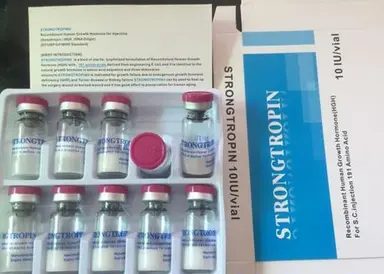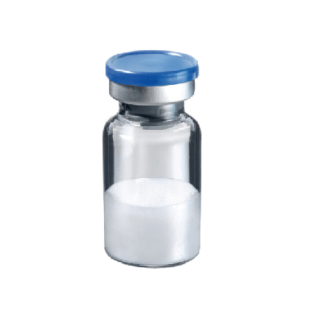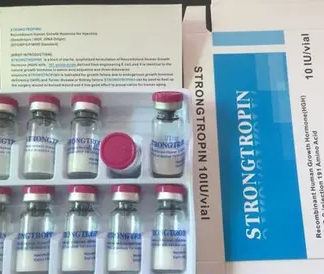Description
Human growth hormone (HGH), also known as somatotropin, is a naturally occurring peptide hormone secreted by the pituitary gland. As its name implies, scientists originally found HGH to be responsible for growth regulation during childhood.
Research has since determined that it is responsible for many other functions such as regulating sugar and fat metabolism, bone growth, and cellular regeneration. Some research even suggests that it may play a role in how the heart functions.
HGH Uses and Abuses
Synthetic human growth hormone was developed in 1985 and approved by the FDA for specific uses in children and adults. In children, HGH injections are approved for treating short stature of unknown cause as well as poor growth due to a number of medical causes, including:
Turner’s syndrome, a genetic disorder that affects a girl’s development
Prader-Willi syndrome, an uncommon genetic disorder causing poor muscle tone, low levels of sex hormones, and a constant feeling of hunger
Chronic kidney disease
HGH deficiency or insufficiency
Children born small for gestational age
In adults, approved uses of HGH include:
Short bowel syndrome, a condition in which nutrients are not properly absorbed due to severe intestinal disease or the surgical removal of a large portion of the small intestine
HGH deficiency due to rare pituitary tumors or their treatment
Muscle-wasting disease associated with HIV/AIDS
But the most common uses for HGH are not FDA-approved. Some people use the hormone, along with other performance-enhancing drugs such as anabolic steroids in an attempt to build muscle and improve athletic performance.
Because the body’s HGH levels naturally decrease with age, some so-called anti-aging experts have speculated and claimed that HGH products could reverse age-related bodily deterioration.







Reviews
There are no reviews yet.